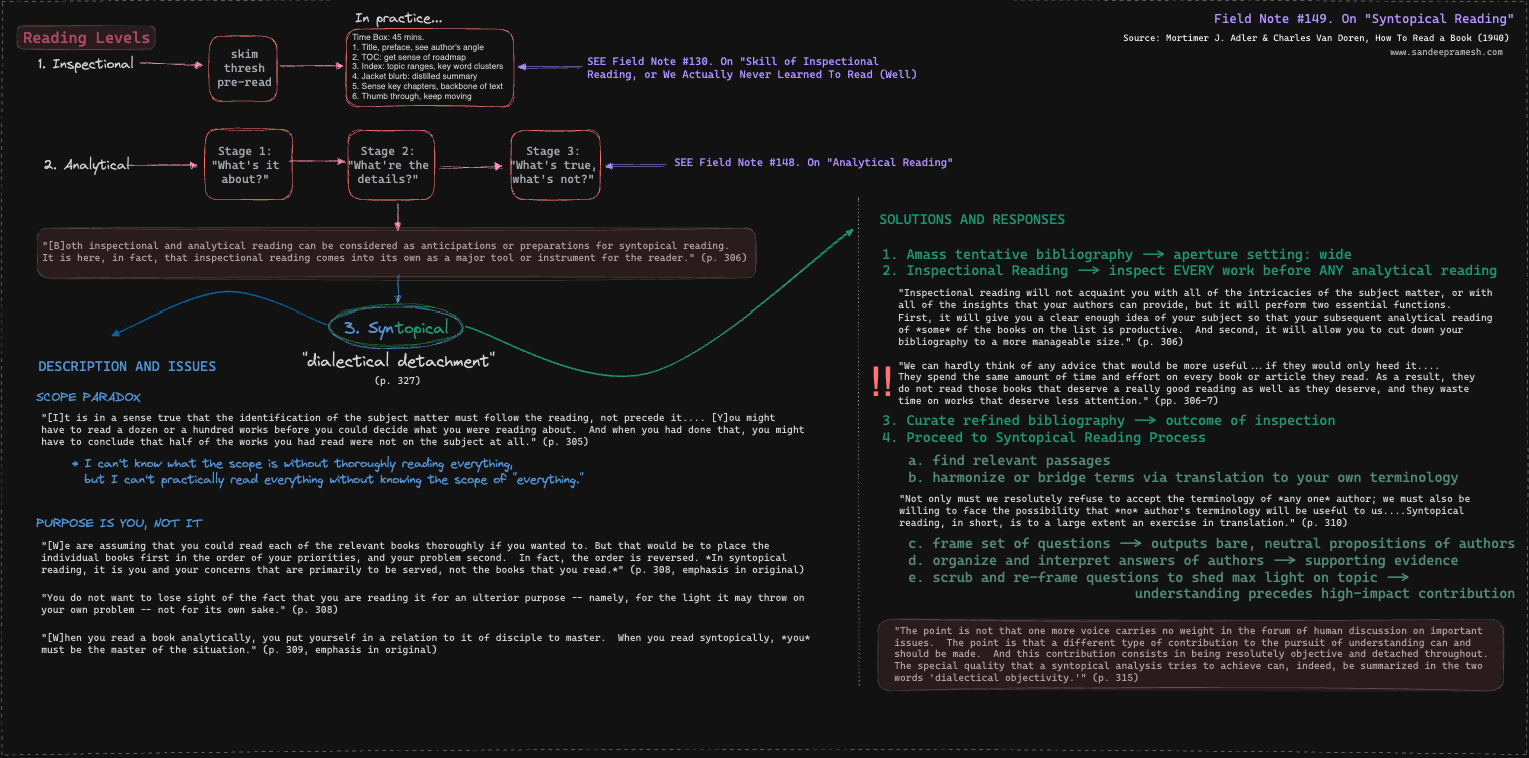Source: Mortimer J. Adler & Charles Van Doren, How To Read a Book (1940)
Context
And so ends this Reading Triptych (Field Notes 130, 148, and this 149) with a textual and aesthetic interpretation of Adler & Van Doren's notion of "syntopical reading."
But what's really at stake? Consider the prescience of the following words written in 1940:
"Television, radio, and all the sources of amusement and information that surround us in our daily lives are also artificial props. They can give us the impression that our minds are active, because we are required to react to stimuli from outside.
But the power of those external stimuli to keep us going is limited. They are like drugs. We grow used to them, and we continuously need more and more of them. Eventually, they have little or no effect.
Then, if we lack resources within ourselves, we cease to grow intellectually, morally, and spiritually. And when we cease to grow, we begin to die.
Reading well, which means reading actively, is thus not only a good in itself, nor is it merely a means to advancement in our work or career. It also serves to keep our minds alive and growing." (p. 336)
The Map.
May we now begin again.
